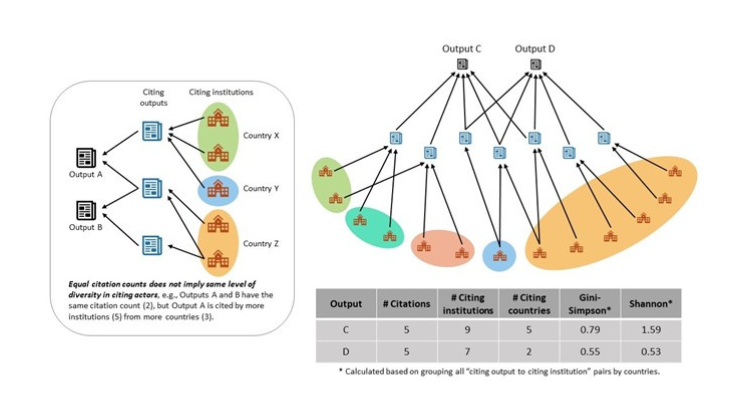Focusing on the recent public outcry around a potentially wide-ranging OA policy for books in the next iteration of the REF, publisher, Lucy Barnes and author, Judith Fathallah make the case for recognising the important role played by no-fee academic book publishers, particularly for early career researchers.
Recent proposals to include an open access (OA) mandate for books in the next iteration of the REF sparked negative reactions from many academics and rapid assurances that the consultation is still in ‘listening mode’. It’s reasonable to ask whether mandates are the best way to facilitate a transition to OA, but I’m concerned by something more basic: much of the online commentary displays a highly selective view of how OA book publishing works or why it matters. Moreover, a view that is skewed towards the experiences of established authors with little experience of OA book publishing and secure access to paywalled research.
There are important and well-rehearsed ethical arguments for making research openly available, particularly in areas where research focuses on people who currently can’t afford to read it, but these have been conspicuous by their absence. Rather than considering it a benefit for more people to access academic research, some have argued that it is too specialised for many readers to understand, or too niche for general interest. The download figures for OA books suggest otherwise.
much of the online commentary displays a highly selective view of how OA book publishing works or why it matters.
There are many more independent or precariously employed scholars; arts, humanities and social science (AHSS) graduates; and interested people among the general public than authors established in academia might appreciate. The claim that research in these subjects is irrelevant to most people is, in any case, a strange one for authors to make, not to mention a strategic miscalculation in the face of the underfunding and marginalisation of AHSS subjects.
There are also few acknowledgements of the costs of a closed system, from which academics with secure access to university libraries are often shielded. These include the high price of academic books for individual readers, the aggregate costs for libraries, and particularly the exorbitant and often unseen burden of ebook licences, which the #ebookSOS campaign has worked hard to publicise.
There are also few acknowledgements of the costs of a closed system, from which academics with secure access to university libraries are often shielded.
Other responses have focused on a perceived threat to royalties, sadly not usually high for academic books, except in the most successful cases. However, research (and publisher experience) suggest that although it significantly increases access, OA doesn’t destroy sales. Meanwhile understandable worries from academics in certain disciplines about third-party image rights don’t always acknowledge that OA books can be published with a large number of images.
Again there are valid concerns about author fees, but little awareness of models that don’t require them. These are growing in number, such as at the press I work for, Open Book Publishers; Liverpool University Press and Central European University Press; MIT Press; the University of Michigan Press; and the Open Book Collective of presses; as well as pilot models at Taylor & Francis, Cambridge University Press, and Bloomsbury. Institutional OA publishers are on the rise, as the recently established Open Institutional Publishing Association demonstrates. Universities could do more to support and encourage the growth of such models.
research (and publisher experience) suggest that although it significantly increases access, OA doesn’t destroy sales.
The presses charging the highest fees tend to be the most prestigious outlets: the top of the publishing food chain. This reflects a prestige economy in which presses effectively charge authors for their imprimatur, and authors and their institutions arguably underestimate their capacity to negotiate a better deal with publishers that rely on their research instead of focusing on how to find the money for exorbitant fees. If prestigious presses think that money will continue to be found, they will continue to charge.
Related claims that a requirement to publish one’s book OA would stymie academics’ career progression are often made by those academics who have established their careers in a publishing culture and an academic environment that is changing. Trade books (untouched by the REF proposal following a swift clarification) are published by relatively few authors, while the visibility and potential citation boosts conferred by OA are arguably career advantages.
As for options for ECRs, there are examples that could act as inspiration for forward-thinking universities and scholarly societies, such as the Royal Historical Society’s New Historical Perspectives series and the recently-announced Trailblazers programme. The OA press I work for (which does not charge fees) has published books by ECRs that have gone on to be favourably reviewed and even win prestigious prizes.
An author writes – Dr Judith Fathallah
My initial experience of OA book publishing was retrospective. I only realised it had happened in hindsight. My first book, Fanfiction and the Author: How Fanfic Changes Popular Cultural Texts, was published in 2017 by Amsterdam University Press. A few years later, I noticed that its citation count on Google Scholar had jumped dramatically. Without my knowledge, the book had been made OA by Knowledge Unlatched, meaning it now has almost ten times the citations of my second book, Emo: How Fans Defined a Subculture (Iowa University Press 2020).
When I published my third book, Killer Fandom: Fan Studies and the Celebrity Serial Killer, I had learned through my work with the Open Book Collective, where I am a research and outreach associate, that there are sustainable and innovative ways to publish OA books. I was convinced of the ethical imperative and citation advantage of OA publication, but what about career development?
Throughout my training and development as an academic, I had come to believe (at least subconsciously) that certain names and academic brands were key to securing a permanent contract and a stable research position. However, given that my choice of traditional publishers had not fulfilled this implicit contract, I saw little to gain from persisting. Indeed, I believe this contract is obsolete. It seems to me that the legacy publishing strategies of previous academic cohorts will become increasingly irrelevant to the career trajectories of ECRs, PGRs and current PhD students: precarity and job insecurity is increasingly the norm amongst UK academics, accelerated by Brexit and the long-term effects of the pandemic.
the legacy publishing strategies of previous academic cohorts will become increasingly irrelevant to the career trajectories of ECRs, PGRs and current PhD students
Further, working with a small, scholar-led, OA book publisher has been a pleasure. The publisher offered me a tailored promotional strategy, including connecting me with the New Books Network. Fees were not discussed as the publisher is partially funded on a consortia model supported by academic libraries. After the book had been accepted, the press director did ask if my employing institutions had any funds available to support their work, and a relatively small sum was agreed, but publication was in no way dependent on this – I had already signed the contract. The production quality was high. The book is available freely online and in paperback for $20. It features 9 figures in original coloration (8 full colour, 1 black and white) and I encountered no problems in including images in an OA book.
Supporting diverse pathways to OA Books
There are strong arguments in favour of OA books that have received scant attention in the context of a research assessment culture that urges author compliance rather than persuasion. The lack of awareness of no-fee options and presses experienced in OA is worrying, and the focus on the limited and expensive models offered by legacy presses has resulted in a narrow conversation.
University support for no-fee models is needed to encourage more publishers to experiment with these approaches and to avoid the situation that has developed in journal publishing, in which expensive fees and ‘Transformative’ Agreements enable authors to publish OA only if their institutions can afford to pay.
Finally, a greater number of voices should be heard, including those who benefit from OA books, those who have published them, and those who are navigating an earlier stage in their academic careers. This emerging cohort of researchers have a range of options for publishing OA, and the cachet of legacy publishers may no longer offer a secure avenue to permanent employment.
The content generated on this blog is for information purposes only. This Article gives the views and opinions of the authors and does not reflect the views and opinions of the Impact of Social Science blog (the blog), nor of the London School of Economics and Political Science. Please review our comments policy if you have any concerns on posting a comment below.
Image Credit: Olena Bohovyk via Unsplash.








The value of open research is not what is for debate there though, nor the availability of a number of different publishing venues for those within academia… What is for debate is that the REF should not be able to choose not to assess research outputs based on the place of publication or whether the publication is open or closed.
The REF assesses a very small portion of the research outputs that are published during any REF period – HEI’s should be assessed on how they approach open research, open data, open educational resources etc – but this should be in the person, culture and environment element. It should not be a policy for either journal articles or books, and research outputs should not be ineligible for submission due to place of publication. It is highly inequitable.
What has also not been mentioned is that whilst the REF2021 OA policy made substantial changes for the better, it also had some unintended consequences and there has been a sharp rise in not only the number of predatory or vanity publishers, but also in article processing charge fees.
With UKRI stating that they will pay up to £10,000 per monograph that they fund – there is already an incentive for publishers to raise prices to get maximum return.